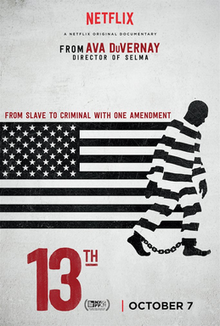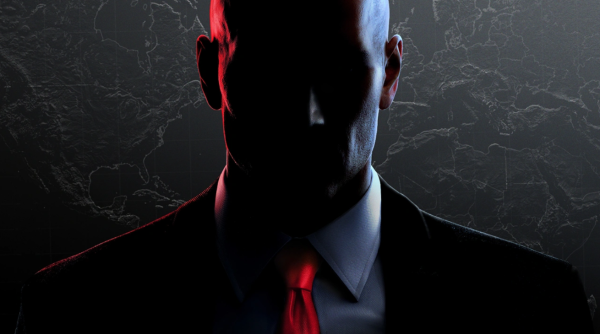Movie Review: Ava Duvernay’s ’13th’

On October 7th, Netflix released 13th, Ava DuVernay’s prison documentary on the history of racial inequality in America. It explores how the United States became the country with the world’s largest prison population and why a hugely disproportional number of those prisoners are black. The film explains how mass incarceration became an extension of slavery that has been ongoing for decades in The United States. “I was always disturbed, fascinated, and furious [about]…the prison industrial complex,” says DuVernay at a press event. She was finishing up her civil rights drama Selma, when a Netflix executive reached out to her and asked her if she’d be interested in making a documentary. DuVernay, who in the past has filmed documentaries was thrilled with the idea.
The film sheds light on the fear that presidents Ronald Reagan and George H.W. Bush instilled in American people about black men. It also touches base on the war on drugs, police brutality and explores the truth behind the Black Lives Matter movement.
The film was named after the 13th Amendment, which abolished slavery. DuVernay targets the amendment’s exception clause, which states that slavery and involuntary servitude are illegal “except as a punishment for crime.” In the documentary you see Civil Rights Activists Martin Luther King Jr. and Rosa Parks who were depicted as criminals on national news broadcasts. “For the first time in history being arrested was a noble thing,” says historian and filmmaker Henry Louis Gates Jr. They were often arrested for breaking the segregation laws in the south and protesting the equality of African American people in America. “For years now I have heard the word “Wait!” It rings in the ear of every Negro with a piercing familiarity. This “wait” has almost always meant “never.” We must come to see with the distinguished jurist of yesterday that “justice too long delayed is justice denied.”— Martin Luther King Jr. Angela Davis, also known for her activism during the Civil Rights era talked about her personal experience of police brutality her and her family dealt with when she was growing up in Birmingham, Alabama.
13th is being called, “the most relevant movie of the year” by the NYFF. This film opened the New York Film Festival and is currently playing in selected theaters.

















